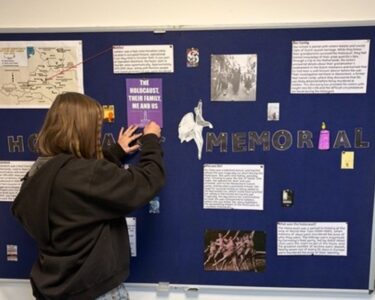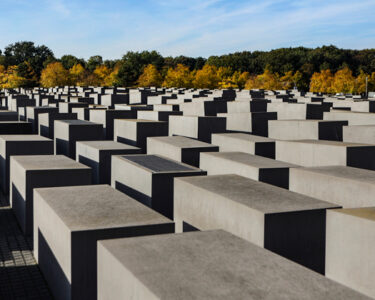I am a History teacher in a large, all-boys secondary school in South West London. It’s Friday, 3 May, 2019: 2.40pm.
I’ve just taught a Year 9 class a lesson from our scheme of work on the Holocaust. It involved the students taking a look at personal stories of victims of the Nazi regime from Roger Bushell to Mendel Grossman.
The lesson itself is an excellent one. The boys have a card detailing the experience of a person who suffered at the hands of the Nazi regime. They move purposely to place their card on a timeline…with the added challenge of placing it above the date cards if they think their person was a victim of the Holocaust.
Nevertheless, my teaching of the lesson is made all the better because of my participation in the Beacon School study trip to Poland that I undertook a couple of years ago. Being able to talk about places I’d visited and how they related to the individuals on the cards gave a further dimension to the explanation that I provided to the students and the depth of response that I delivered to the questions they asked in the lesson I’ve just taught. Being able to describe the physical dimensions of a place, what it looks like now, how a particular site has been remembered…without giving anything away about the content of the trip I know that this year’s participants will soon join me in giving impassioned explanations about Janusz Korczak and Mordechai Anielewicz who featured in the lesson that I taught twenty minutes ago. They’ll know what I mean on their visits to the Warsaw Ghetto and Treblinka.
So, the trip to Poland directly informs my teaching of the Holocaust. It provided knowledge, inspiration, depth, breadth – all facets that I can call upon to enhance the lessons I teach. A concrete example: as a starter activity I give the students a paragraph of explanation about my visit. I ask them what it reveals about the nature of the Holocaust, its significance and the questions they have. They glean: you went to Poland. Why Poland? You visited a ghetto and saw one of the last remaining pieces of the ghetto wall. How high was it? What has replaced it? You went to Treblinka. How is that different to Auschwitz? And so on…
So, as the new cohort of Beacon School teachers travel to Poland I hope that the trip has the same impact on them as it did on me. Personally and professionally it will be a most meaningful and powerful experience.
Andy Lawrence, Hampton School



